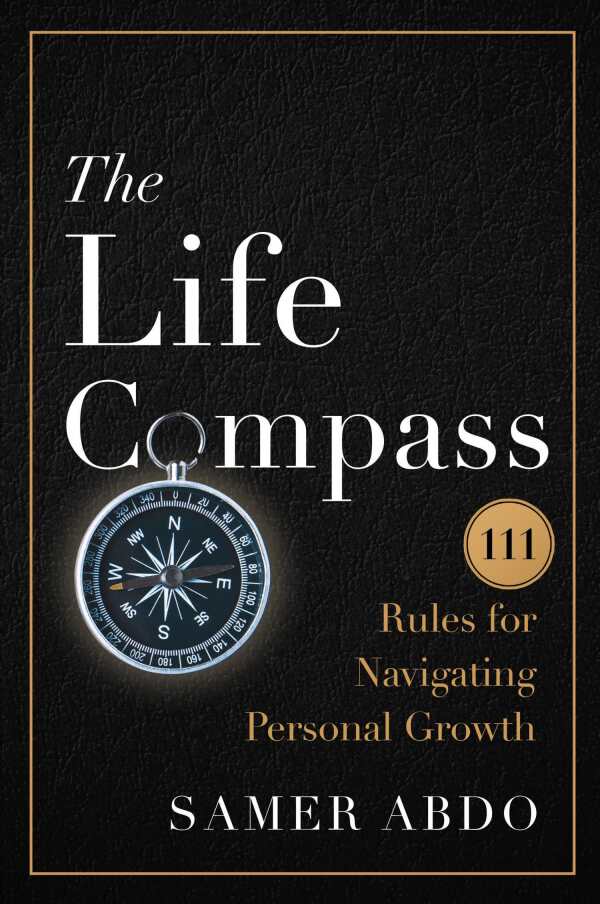The Life Compass
111 Rules for Navigating Personal Growth
Situating its psychological insights within timeless philosophical traditions, The Life Compass is a grounded self-help text.
Samer Abdo’s practical self-help book The Life Compass includes philosophical and practical insights for navigating the whole arc of human experiences.
Split into sections covering inward and outward change, the book shares more than one hundred concise rules for personal growth, situating psychological insight within timeless philosophical traditions. On covering inward change, it forwards recommendations for managing one’s thoughts, emotions, and self-perception. The second section is about navigating relationships, conflicts, and social engagements. From common self-help refrains, like to stop complaining and to practice gratitude, to more meditative, open-ended encouragements to be formless and adaptable, the text progresses from everyday to existential concerns.
Each rule functions as an interpretive lens aimed at shifting a person’s perspective. The recurring message is that external circumstances do not govern personal well-being; rather, people’s responses, internal narratives, and capacities for perspective shape their experiences. In driving its points home, most chapters assume a similar format: Quotations appear before each rule, drawn from a wide range of sources, from Lao Tzu to Maya Angelou; next comes a short, accessible explanation of the centered rule (for example, don’t chase happiness, avoid negative self-talk, and live in the present moment), followed by two brief case studies.
The case studies often lean into well-known stories and famous biographies, with tales about Siddhartha Gautama and Marcus Aurelius appearing alongside examples from Apple, WeWork, and Bill Gates. Biblical references, as with one to King Solomon, and historical moments like the fall of Nicholas II are used to exemplify lapses in self-mastery or clarity. Traditions including stoicism, Buddhism, modern psychology, and mindfulness practices are included.
While some of the book’s examples are unconvincing—Margaret Thatcher, for instance, is characterized as empathetic—others are illuminating, as with Matthieu Ricard’s turn from science to spiritual discipline as a case for realizing true happiness within. But too often, the examples are negative, focused on figures who did not embody the rule in question and whose choices led to downfall, crisis, or regret. For example, Adam Neumann’s overreach at WeWork is used to illustrate the dangers of uncontrolled thought, and J. Paul Getty’s failure to act with compassion during his grandson’s kidnapping is used to underscore the cost of attachment. The accumulation of such examples shifts the attention away from success too much.
While the text is short on groundbreaking insights, it is organized and methodical. It presents familiar ideas with clarity and enhances them with context, revealing the subtle consequences of one’s mindsets, habits, and beliefs. The prose is direct and uncluttered, and a long self-evaluation questionnaire is presented at the end to make the rules more applicable.
An insightful if formulaic self-help book, The Life Compass suggests grounded inner and outer practices for lifelong growth.
Reviewed by
pine breaks
Disclosure: This article is not an endorsement, but a review. The publisher of this book provided free copies of the book and paid a small fee to have their book reviewed by a professional reviewer. Foreword Reviews and Clarion Reviews make no guarantee that the publisher will receive a positive review. Foreword Magazine, Inc. is disclosing this in accordance with the Federal Trade Commission’s 16 CFR, Part 255.

